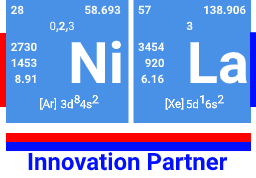
The high quality and safety of our sources are the most important things that we have always prioritized. We always try our best to choose the right sources of materials for our customers, by collaborating with certified and qualified principals.

Good manufacturing practices (GMP) constitute a set of basic principles in order to ensure that products are manufactured under appropriate sanitary conditions and the risks inherent in production and distribution are reduced.

CPOTB (GMP for traditional medicine) is a set of rules and guidelines for the production and quality control of traditional medicines covering the entire series of traditional medicinal productions aimed to ensure that the results of the productions always meet the stipulated requirements.
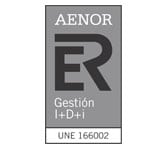
UNE 166002:2006 standard, is the first in the world to offer a certifiable standardised management system for innovation.
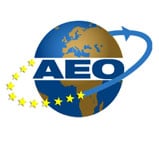
The AEO concept is based on the Customs-to-Business partnership introduced by the World Customs Organisation (WCO). The aim of this programme is to enhance international supply chain security and to facilitate legitimate trade. It covers economic operators authorised for customs simplification (AEOC), security and safety (AEOS) or a combination of the two.
Traders who voluntarily meet a wide range of criteria work in close cooperation with customs authorities to assure the common objective of supply chain security and are entitled to enjoy benefits throughout the EU.
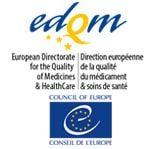
Certificate of Suitability of Monographs of the European Pharmacopoeia (CEP). The role of a Certificate of Suitability (CEP) is to certify the compliance of a material with the requirements laid down in the relevant monograph of the European Pharmacopoeia.
With this Certificate, granted by the Certification Secretariat of the European Directorate for the Quality of Medicines (EDQM), a manufacturer of a substance can provide proof that the quality of the substance is suitably controlled by the relevant monographs of the European Pharmacopoeia. The CEP confirms that pharmaceutical substances or active pharmaceutical ingredients (API) are produced according to the monographs of the EP.
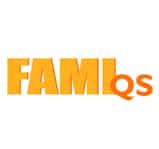
FAMI-QS code standard addresses feed safety, legality and quality based on the European Animal Feed Regulation (184/2005/CE). To ensure compliance with these laws and to improve feed safety and quality, the European Feed Additives Manufacturers Association had issued a code against which to be certified: FAMI-QS (Feed Additive and preMIxture Quality System).
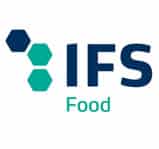
IFS is the international standard for auditing retailer and wholesaler branded food products. The IFS standard applies to suppliers at all steps of food processing subsequent to the agricultural stage. The requirements are related to the quality management system and the HACCP system (Hazard Analysis & Critical Control Points), supported by detailed prerequisite programmes, that is a set of GMP (Good Manufacturing Practice), GLP (Good Laboratory Practice) and GHP (Good Hygiene Practice) requirements. IFS meets the criteria of the Global Food Safety Initiative by CIES.
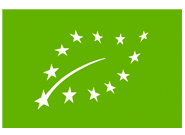
The Ecological Certificate allows DBCH to guarantee our clients our commitment to quality, compliance with legal requirements (national and international) in environmental matters, and in the fight against food fraud. It is considered an indispensable requirement for the manufacture of Baby Food and organic products.

The Food and Drug Administration (FDA) is a federal agency of the United States Department of Health and Human Services, one of the United States federal executive departments. The FDA is responsible for protecting and promoting public health through the control and supervision of food safety, tobacco products, dietary supplements, prescription and over-the-counter pharmaceutical drugs (medications), vaccines, biopharmaceuticals, blood transfusions, medical devices, electromagnetic radiation emitting devices (ERED), cosmetics, animal foods & feed and veterinary products.
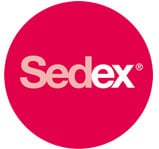
Sedex is a global membership organisation that prides itself on making it simpler to do business that’s good for everyone, including social, economic, environmental and human rights improvements.
It is one of the world’s largest collaborative platforms for sharing responsible sourcing data on supply chains, used by more than 50,000 members in over 150 countries.
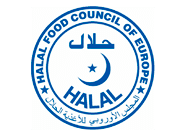
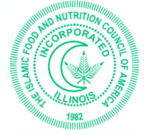
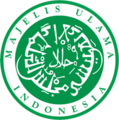
Halal certification is a process which ensures the features and quality of the products according to the rules established by the Islamic Council that allow the use of the mark Halal. It is mainly applied to meat products and other food products such as milk, canned food and additives.
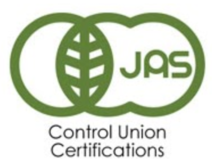
The Japanese Agricultural Standards are standards for the agriculture industry maintained by the Japanese Government. The Japanese authority (MAFF) accredits Control Union Certification for the organic program (JAS organic).

Certified by United States Department of Agriculture (USDA) as an organic product.

Certified by European Union (EU) as an organic product.

The Rainforest Alliance certification seal means that the product (or a specified ingredient) was produced by farmers, foresters, and/or companies working together to create a world where people and nature thrive in harmony.

A CSR assessment is an evaluation of how well a company has integrated the principles of CSR into their business. An assessment program is a first step into an ongoing monitoring process. The objective of the assessment is to get a clear picture of Corporate Social Responsibility practices (i.e. environment, social, ethics, supply chain) of a company.

The Food Safety Certification requirements provide a rigorous system to manage food safety risks and provide safe products for use by companies in the food industry.
FSSC 22000 is a GFSI recognized food safety certification. This allows the consumer to have confidence in a company’s food safety program and know that have a rigorous food safety system in place.
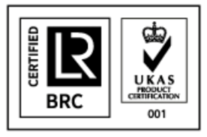
Accredited by LRQA to BRC Storage & Distribution under the scope "Wholesaling and storage of branded & own branded speciality high purity mineral salts for the nutritional market".

Highly selective elimination of undesirable contaminants like: Allergens, lipid peroxides, pesticides, dioxins, PAH, PCB‘s which results several advantages: highest safety levels, excellent solution properties, improved stability, and economic advantages.

Efficient protection of native substances, avoids the degradation of heat sensitive components which are prone to oxidation polymerization and/or hydrolysis.